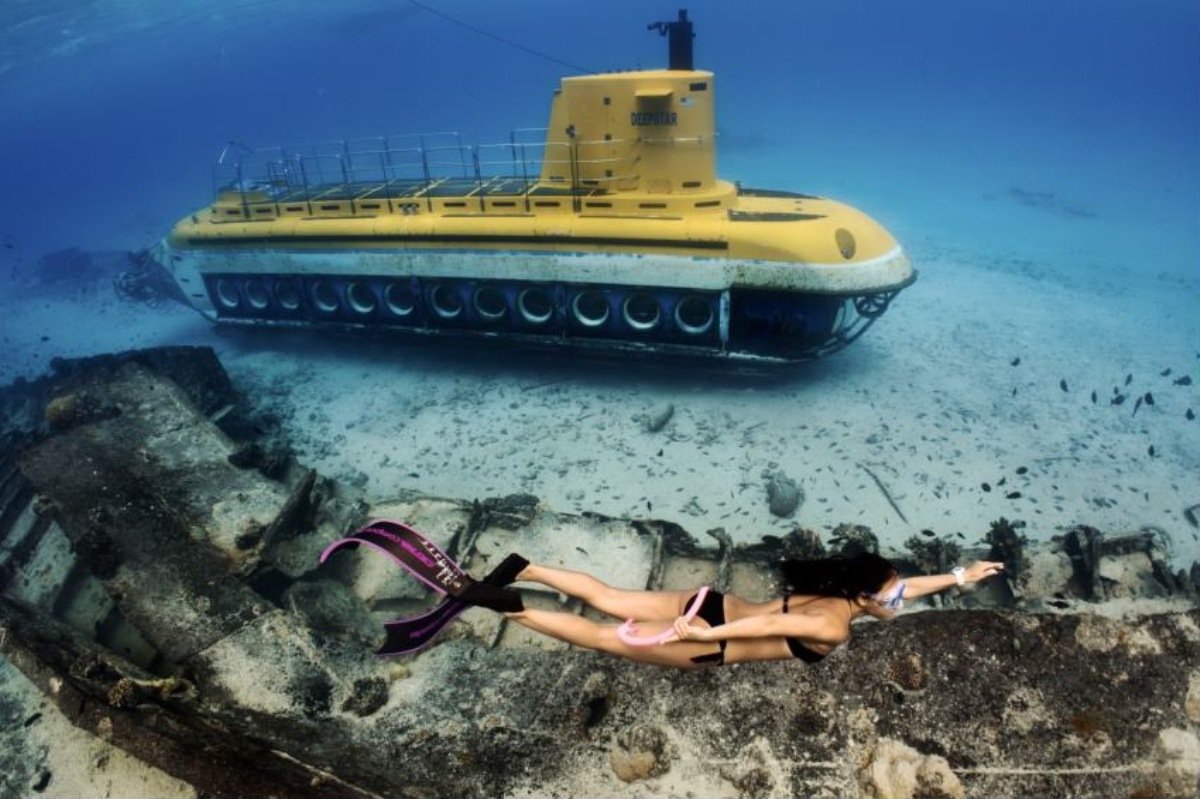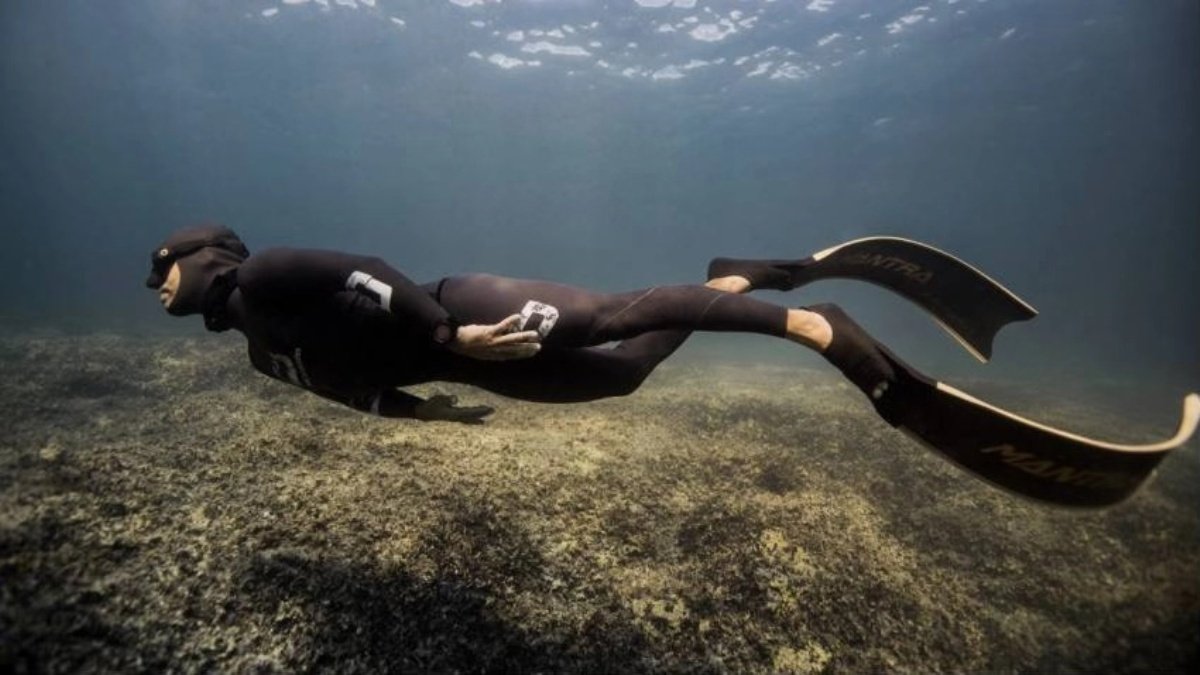Ditch the Tank and Plunge Beijing's Depths With the City's Freediving Community
Beijing Olympian is an ongoing column in which we explore the newest, the funnest, and the downright whackiest in Beijing’s fitness scene.
Remember what it was like to dive before scuba? Unless you are a spear fisherman, pearl diver, or shipwreck treasure hunter, then the answer is probably no. Before the development of Self Contained Underwater Breathing Apparatus "SCUBA"), the only people crazy enough to practice breath-hold diving were getting paid good money to do it. Funny how things change! Call it a desire to be more of a part of nature, or a desire to challenge the limits of the human body, or put it down to too much time watching Disney movies about mermaids – freediving is now a recreational sport! And it’s being practiced right here in Beijing.

What makes a ‘freediver’ any different from the average Joe trying to swim underwater at the swimming pool? Quite a few things. Firstly, freedivers all learn how to 'equalize,' the trick of being able to relieve the pressure in your eardrums when going deep underwater. Without this nifty skill, you’d be lucky to dive five meters without feeling like your ears are about to explode. If you can master equalization, the only limit to how deep you can dive is how low you are willing to go – the world record is over 120 meters and many believe we have only begun to realize the body’s potential for diving.

Secondly, freedivers use diving equipment. The 'free' in freediving is a reference to the fact that no breathing apparatus is being used, but that doesn’t mean they jump in the ocean stark naked and just go for it. Masks are worn for better vision and easier equalization, fins are used to allow the diver to swim faster, and wetsuits may be used for streamlining and temperature moderation.
Lastly, freedivers understand a great deal about the breath cycle which allows them to stay underwater for incredible lengths of time. Whereas the average person tends to give up soon after they feel the 'urge to breathe,' a freediver knows better. Just as an experienced runner doesn’t stop running at the first sign of lactic acid buildup, an experienced freediver learns to recognize the body’s urge to breathe and even the involuntary contractions of the diaphragm merely as signals that carbon dioxide levels are rising – signals which we start receiving well before we are in any real danger.

And it’s perhaps this last point which makes freediving truly unique – assuming you can swim and can get the hang of equalization, subsequent performance improvement is mostly through training the mind rather than the body. A good freediver is part mermaid, part Jedi – able to glide through the water and ‘deconcentrate’ at the same time. The more stress you carry, the worse your performance. Trying 'harder' just means your breath runs out faster.

The freediving experience is so intensely cerebral that it’s practitioners rarely even mention the physical benefits, of which there are of course many – swimming is a great full-body workout and breath-holding has the advantage of improving your lung capacity and cardiorespiratory fitness at the same time. But let’s be honest, you can get those benefits just as easily on the surface. Freediving is about adventure and it’s about finding your inner calm and it’s about becoming one with the oceans. And if all of that sounds a bit much, it also makes for some damn good photos.
Beijing Freediving Contacts (WeChat ID)
The contacts below are all diving instructors involved in the Beijing freediving community and often hire pools around the city to practice as well as organize trips to more remote freediving locations.
- Eric (Evan_Ding): Freediving instructor/diving trip organizer (CN)
- Feiorina (feiorina): Freediving and mermaid instructor (CN)
- Matt (mattyman): Four systems freediving instructor (CN/EN)
- Trunks (Trunks_n): Freediving instructor/spearfishing trip organizer (CN)
- Yuki (yukixu49): Mermaid instructor (CN)
Lululemon Ambassador and Tatler magazine columnist, Victor Rowse is a fitness researcher and personal trainer based in Beijing, China.
READ: Find Support in the Unlikeliest of Places With Beijing's Acro Yoga Pros
Photos: Xie Tian, Cui






